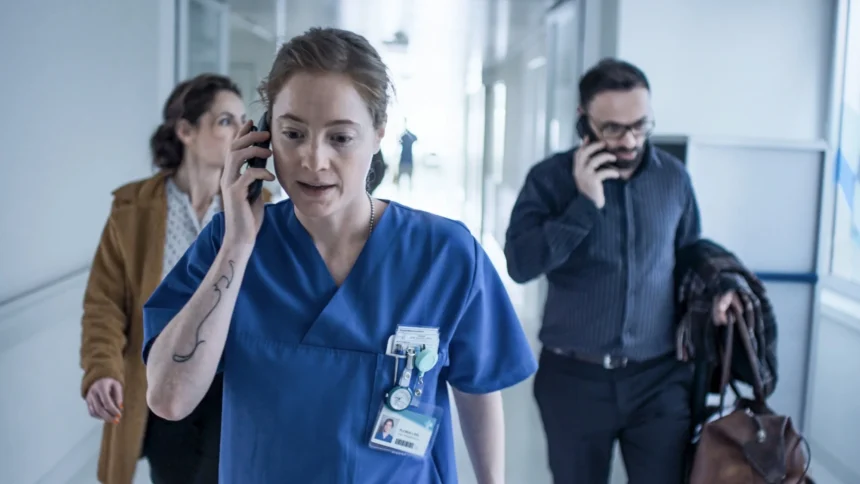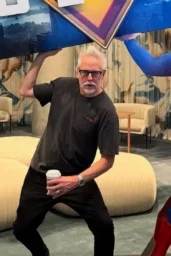There’s a moment in the Late Shift trailer—barely a blink—when Leonie Benesch’s character stands frozen, her eyes wide, her breath caught mid-sentence. The hospital buzzes around her, indifferent. Phones ring. Monitors beep. Patients wait. But Floria, a nurse used to handling it all, has made a mistake. And for the rest of her shift, everything might unravel.
That one beat sums up the pulse of Petra Volpe’s Late Shift (original title: Heldin, meaning “Heroine”)—a film that doesn’t scream or panic but bleeds tension slowly, with surgical precision. It premiered at the 2025 Berlin Film Festival to critical praise and is now headed for UK cinemas via Vertigo Releasing on August 1st, 2025. No confirmed U.S. date yet, but if there’s any justice, that won’t be far behind.
The Crisis Behind the Clipboard
At first glance, the setup feels familiar: an understaffed ward, overworked nurses, demanding patients. But Volpe doesn’t shoot this like a medical drama. There’s no glossy heroism, no sweeping orchestral score to cushion the reality. Instead, we watch Floria (Benesch) attempt to juggle the care of a gravely ill mother (Lale Yavas), an elderly man waiting on a life-altering diagnosis (Urs Bihler), and a high-maintenance private patient (Jürg Plüss)—all while picking up slack for an absent colleague.
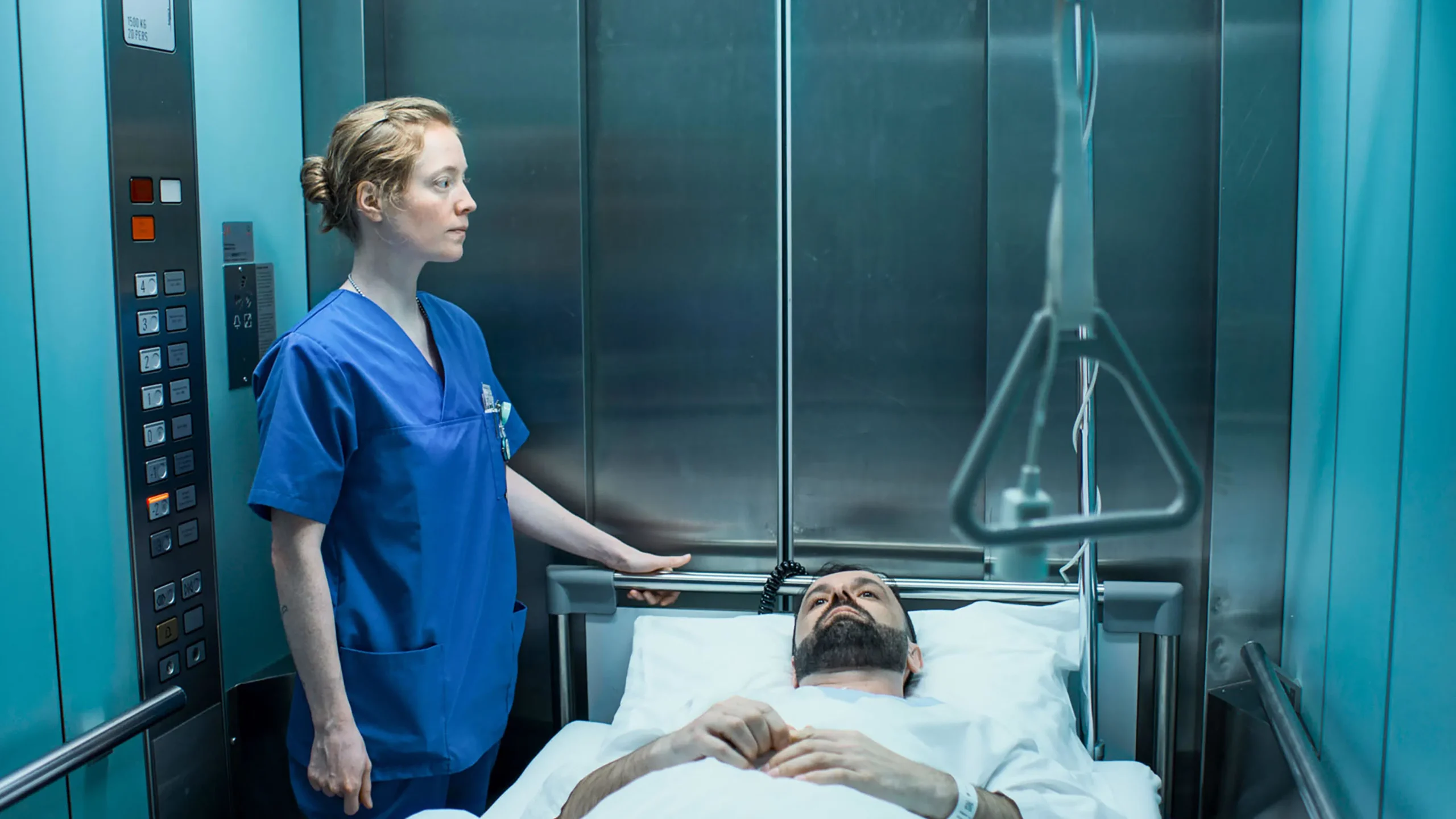
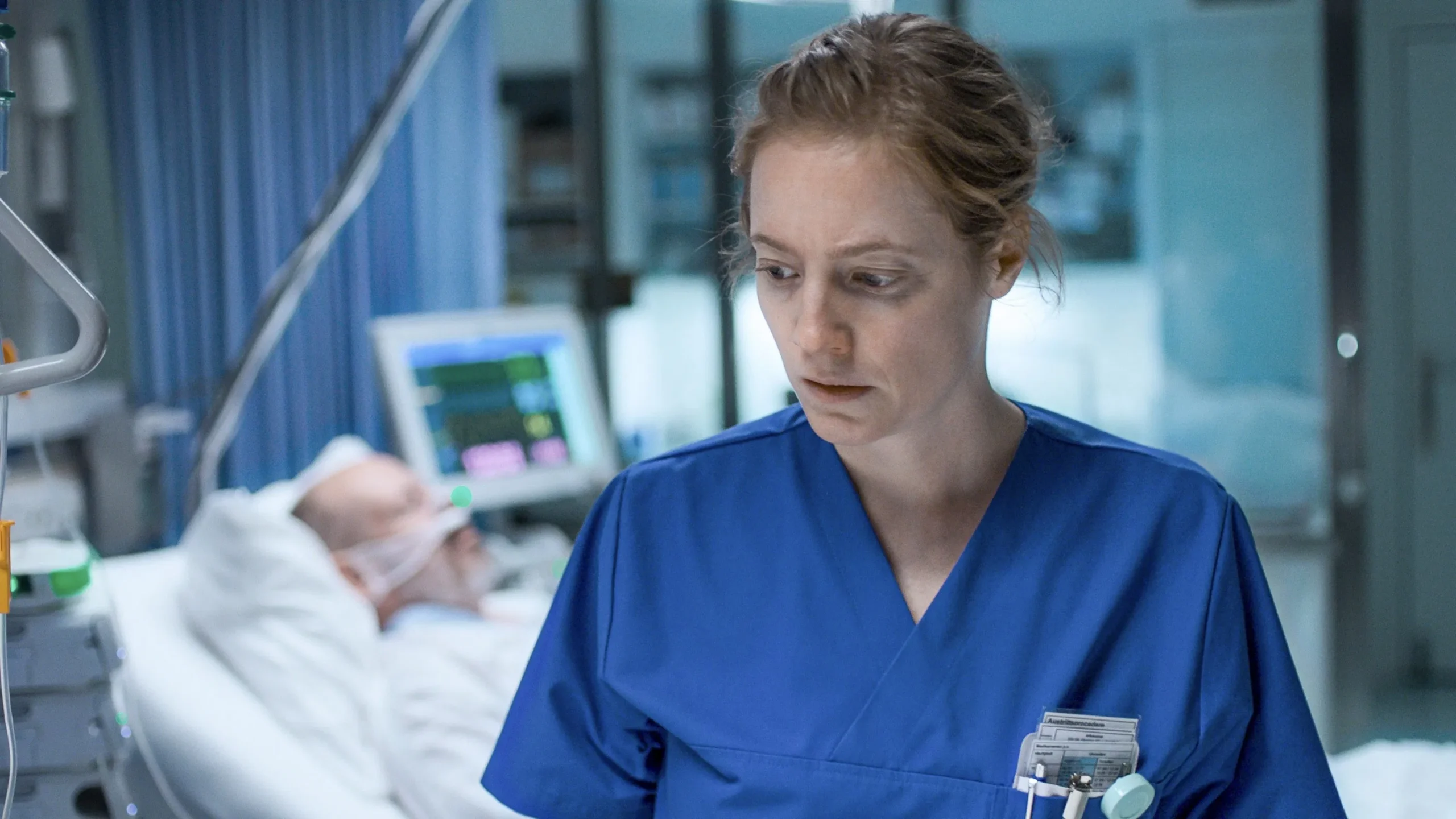
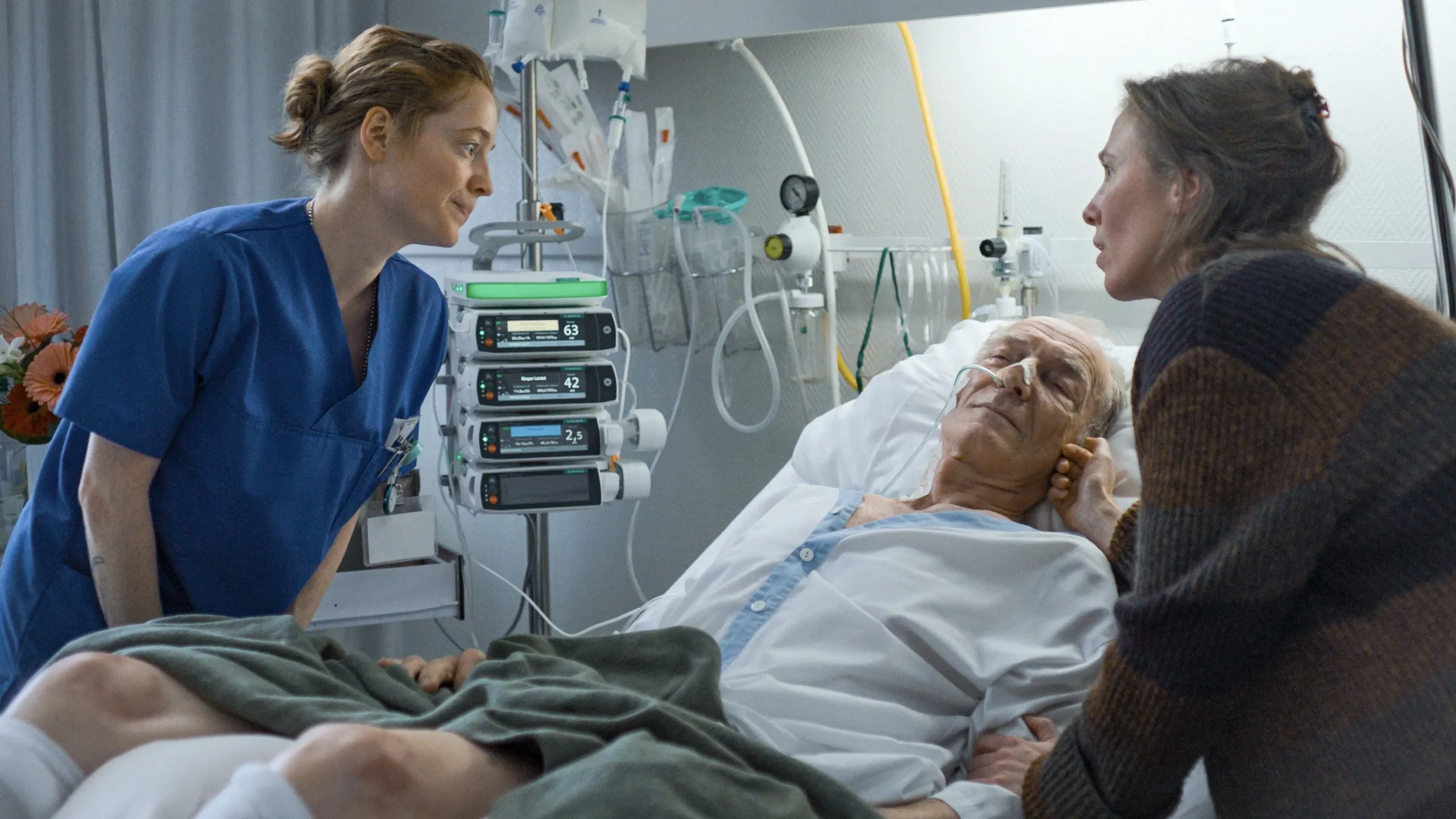
Then—snap. One mistake. And everything begins to shift.
This isn’t just a plot device. It’s a quietly devastating metaphor for the entire healthcare system—always one nurse away from catastrophe. The trailer leans into that claustrophobia: static fluorescent lighting, tight frames, the relentless tick of time. You feel the weight. It’s not just about tending to bodies; it’s about preserving dignity in a system that’s collapsing from within.
A Tribute Disguised as a Thriller
Petra Volpe—best known for The Divine Order—knows how to mix sharp social commentary with deeply personal stories. Here, she turns her lens toward the nursing crisis. According to WHO, a global shortage of nurses is one of the gravest threats to healthcare worldwide. Late Shift doesn’t scream statistics; it shows you the faces, the fatigue, the compassion, and the fallout.
It also does something rarer: it respects nurses not as martyrs, but as professionals. Floria isn’t perfect—far from it—but she’s real. And Benesch, fresh off her roles in The Teacher’s Lounge and September 5, delivers a performance that’s as vulnerable as it is composed. In a lesser film, she’d be swallowed by melodrama. Here, she is the storm.
Shot in the Quiet Corners of a Real Hospital
Filmed on location at Kantonsspital Baselland in Switzerland, the film feels lived-in. You can smell the disinfectant. You can hear the squeaky wheels on carts. There’s no glamor here, and thank God for that. This is the kind of realism that’s becoming increasingly rare in “based on real events” cinema. Volpe isn’t trying to dazzle you. She’s trying to wake you.
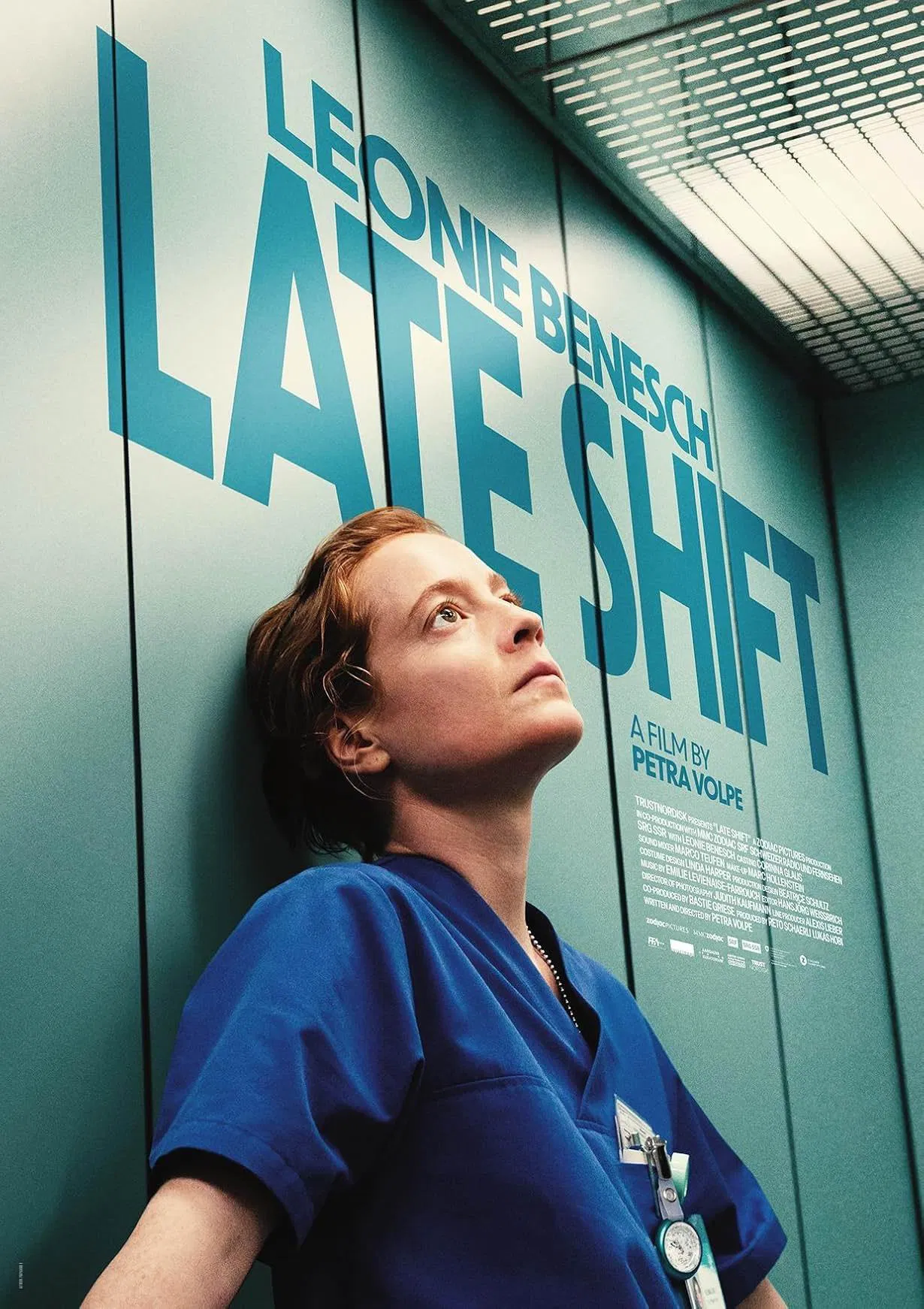
Not Just Another Shift
In a year stacked with loud, flashy genre fare, Late Shift arrives with a whisper that echoes louder than a scream. Its trailer doesn’t tease a spectacle—it promises something more unnerving: the slow, silent collapse of control.
This isn’t a film that asks you to cheer. It asks you to watch—really watch—what happens when the systems we trust start breaking, and the people inside them keep going anyway.
And maybe that’s the point. Nurses don’t get cinematic universes. But they get this.
And honestly? They deserve it.
When was the last time a film made you rethink the people behind the scenes—nurses, caregivers, anyone doing the invisible work? Could Late Shift be that film?

